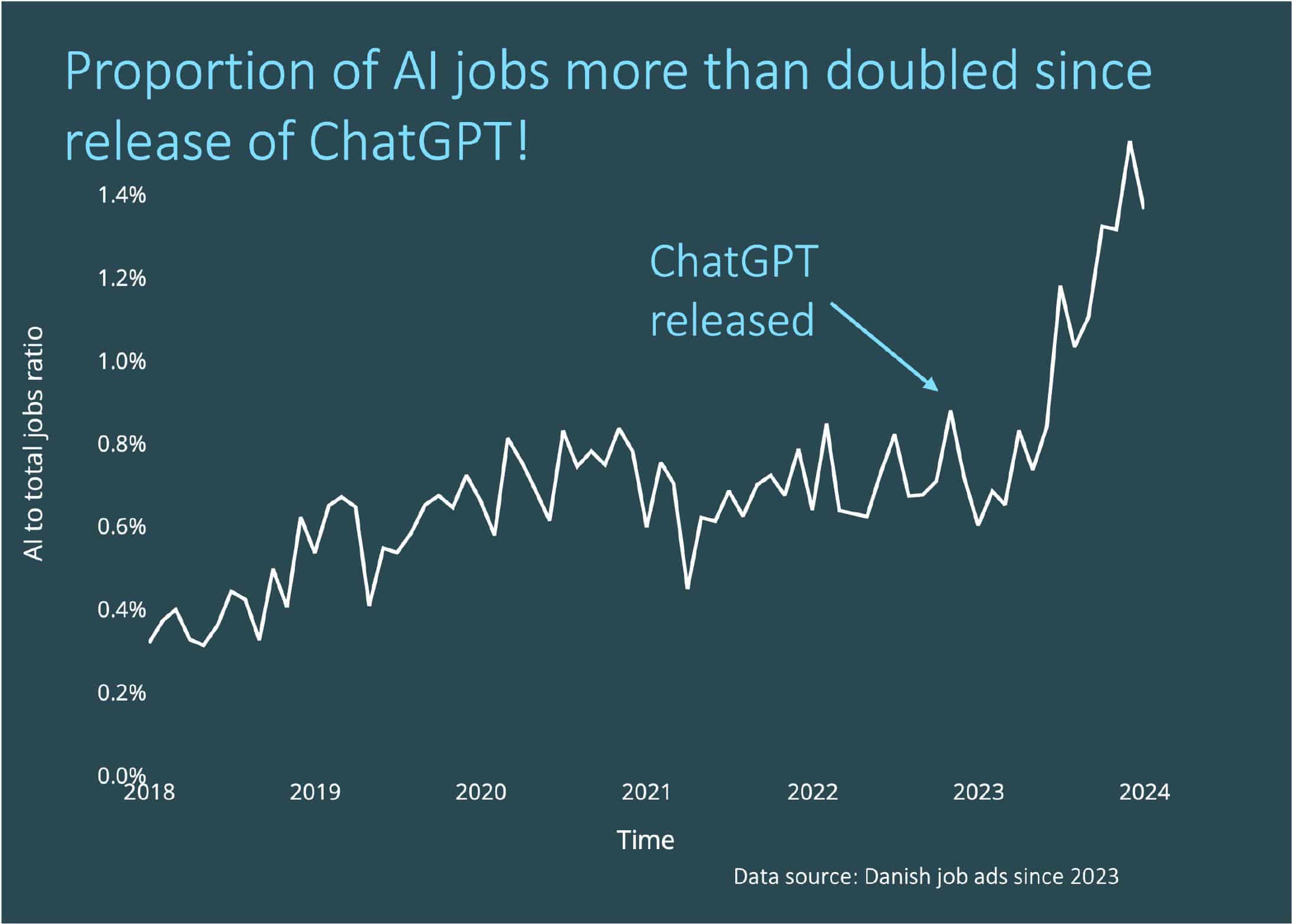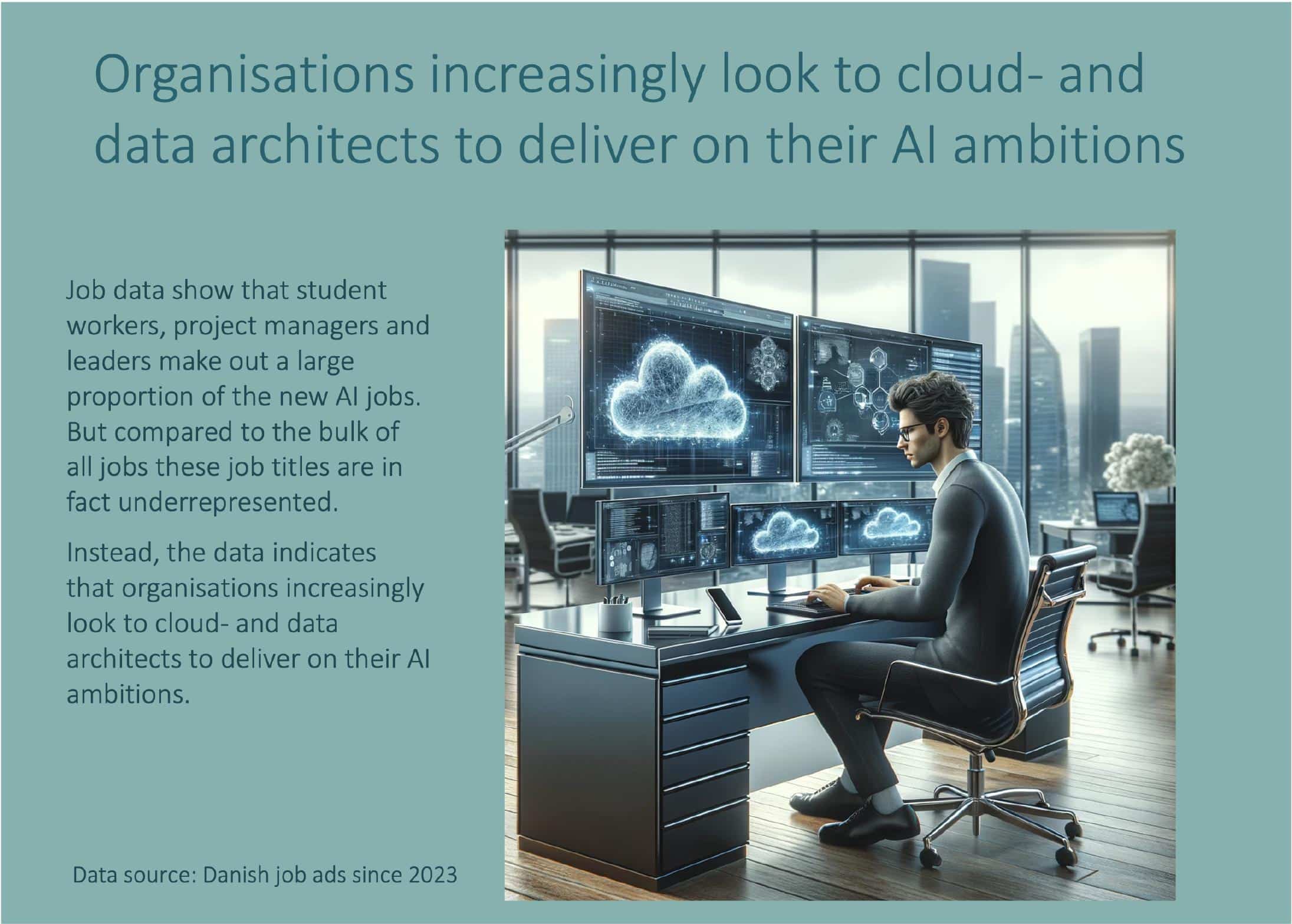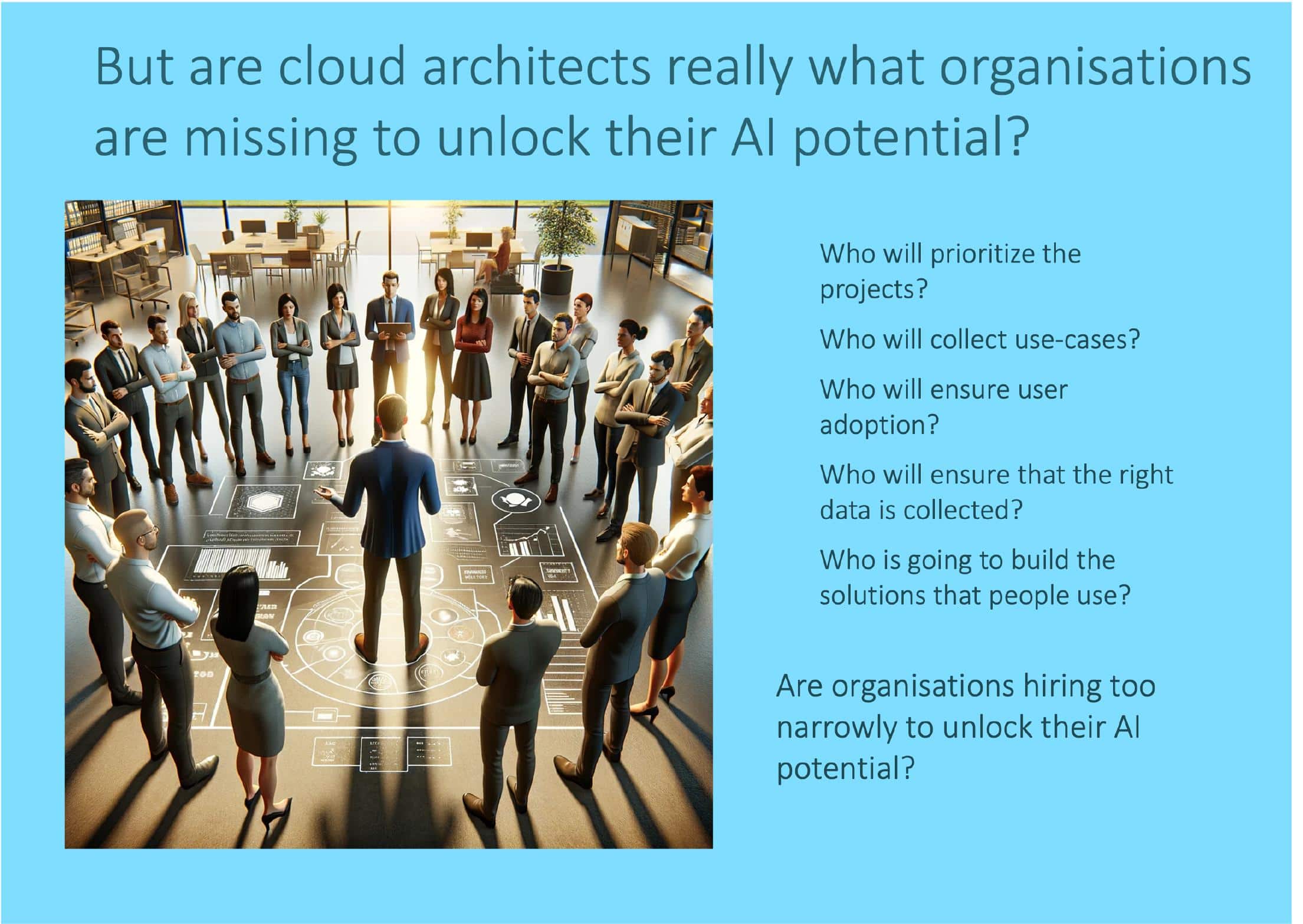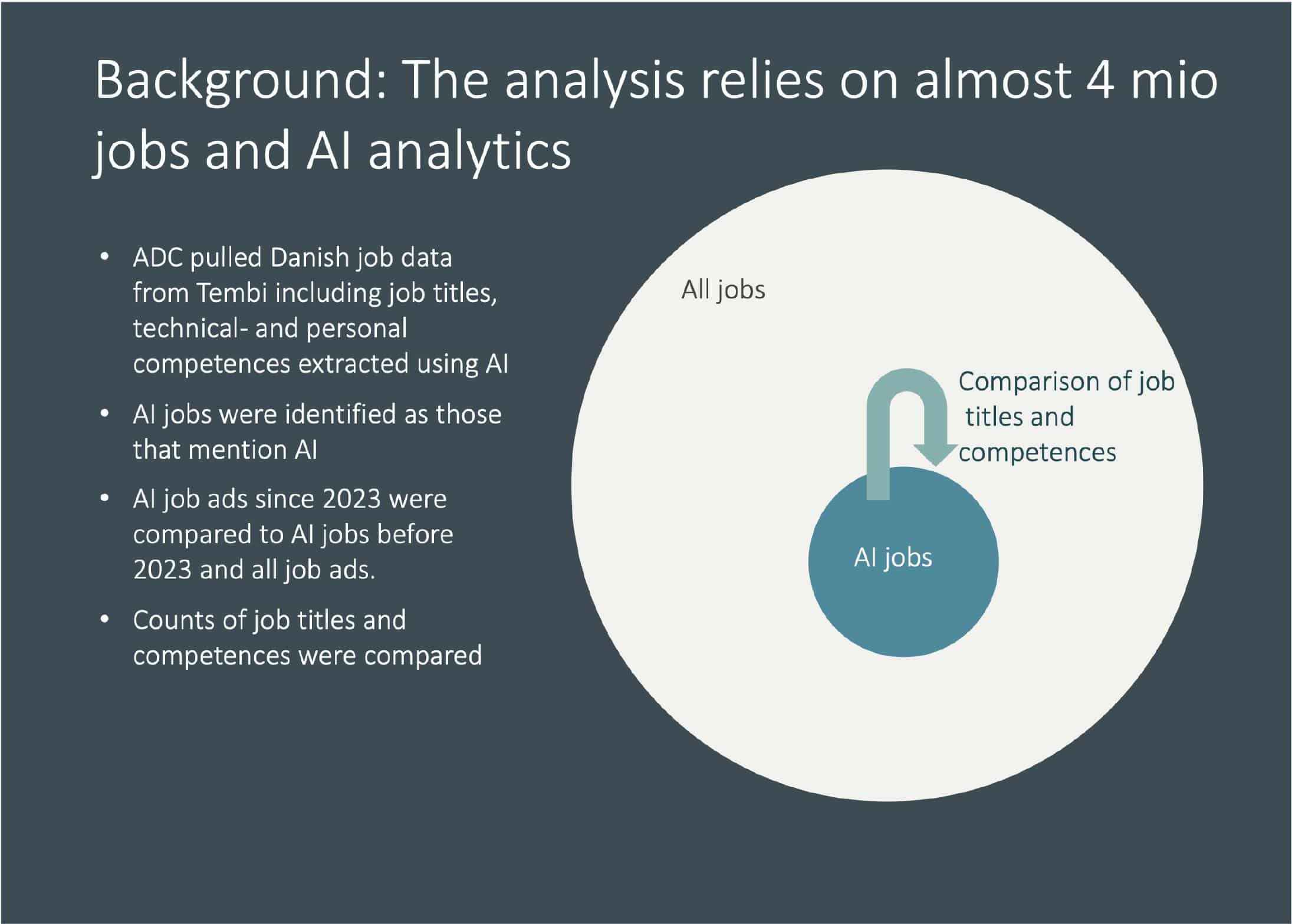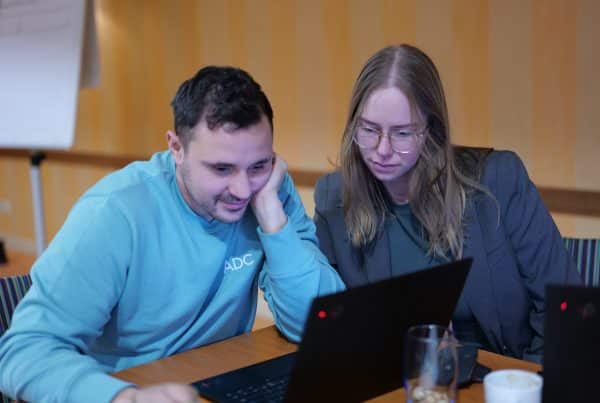In the ever-evolving landscape of AI, 2024 marks a pivotal turning point. What was once a source of excitement and anticipation has now materialised into a tangible reality. AI technologies are rapidly permeating various industries, reshaping job roles, and revolutionising the way we work. In this article, Frederik Vind (Talent Activation), provides unique insights into navigating these transformative changes, shedding light on the dynamic intersection of human potential and the AI-driven future.
AI and the Workplace in 2024
Imagine a workplace where mundane tasks are relics of the past and every aspect of your workday is meticulously tailored to your preferences. Yet, it is also a workplace where the efficiency of AI raises questions about the number of employees needed to accomplish the same tasks. As a professional focused on human potential, this transformation evokes a mix of trepidation and excitement.
What lies ahead for our workforce? Will there be fewer jobs as AI efficiency soars, or will our job market evolve as it has in the past? And how will it affect my profession? While the future remains uncertain, one thing is clear: our job market is undergoing rapid and profound changes.
With my recent career move to ADC, where we specialise in responsible Data and AI, I have actively positioned myself at the forefront of this development. In the following discussion, I will share my insights and knowledge regarding the impact of AI on our work lives in 2024. This exploration will encompass automation, personalised experiences, and the critical importance of safeguarding workers’ rights during this transformative period.
AI's Global Economic Impact
The potential of AI is nothing short of staggering. According to Goldman Sachs, generative AI that is driven by advances in natural language processing could contribute to a remarkable 7% increase in global GDP. That is equivalent to nearly $7 trillion. While this promise is incredible, it is accompanied by a sense of change and uncertainty.
In 2024, our focus has shifted from mere excitement to the actual deployment of AI. This shift prompts us to question the impact on workers’ rights and the very nature of work itself. Concerns about job displacement loom large, and issues related to data privacy and ethical AI usage are gaining prominence. Read more about their research here.
Impact on Employment Markets
AI’s economic potential has a flip side, as it raises concerns about the displacement of workers and potential job insecurity. Leading economists Joseph Briggs and Devesh Kodnani estimate that AI-driven shifts in workflows could put around 300 million full-time jobs at risk of automation. In the United States alone, approximately two-thirds of occupations could face some level of automation due to AI.
However, it is crucial to acknowledge that not all automation spells doom for jobs. Historical evidence suggests that jobs displaced by automation are often counterbalanced by the creation of new roles and the emergence of entirely new occupations driven by technological innovations. For instance, the rise of information technology led to the creation of positions like web designers, software developers, and digital marketing professionals.
As the AI revolution reshapes industries and societies, a new set of jobs is emerging to complement and harness AI technologies. These roles underscore the need for expertise in AI development, ethical considerations, user experience, data management, security, and more — all pivotal in harnessing AI’s potential in a responsible and effective manner.
Anticipated Emerging Jobs
AI Ethicists and Regulators
Experts responsible for ensuring the ethical development, deployment, and regulation of AI technology.
AI Trainers and Explainers
Professionals capable of training AI models and explaining their decisions to end-users or stakeholders, enhancing AI transparency and interpretability.
AI Auditors and Quality Assurance Specialists
Experts adept at assessing the fairness, accuracy, and safety of AI systems and algorithms, ensuring adherence to ethical and quality standards.
AI Integration Specialists
Specialists skilled in seamlessly integrating AI solutions into existing workflows and systems, optimising their performance and efficiency.
AI Content Creators and AI Trainers
Individuals proficient in generating training data, annotating datasets, and creating content for AI applications like chatbots and virtual assistants.
AI Security Experts
Specialists focused on AI security, safeguarding AI systems from cyber threats and vulnerabilities.
AI-Driven Agriculture Specialists
Professionals leveraging AI for precision agriculture, crop monitoring, and yield optimisation.
Responsible AI and The Role of Legislation
At ADC, we are committed to responsible AI. We firmly believe that while local legislation and viewpoints are essential, the battle for responsible AI must be waged on an international stage. We draw inspiration from the European Commission’s proactive steps in addressing the challenges AI poses to workers’ rights. The proposed Directive on platform work and the AI Act are regarded as vital legislative tools to drive innovation while safeguarding workers.
Leaders like Nicolas Schmit, European Commissioner for Jobs and Social Rights, emphasise the necessity of ensuring a fair distribution of AI’s benefits. Clear rules, far from hindering innovation, provide essential guidelines for investment, as highlighted by Thierry Breton, European Commissioner for the Internal Market. The European Employment & Social Rights Forum 2023 (EESRF) serves as an exemplary platform where experts and policymakers are addressing the issue of workers’ rights in the age of AI across the EU.
Speakers at the EESRF emphasised the importance of not resisting technological advances but rather establishing clear rules and supporting workers in adapting to change. Nobel laureate in Economics, Professor Christopher Pissarides, argued that countries with robust social support for workers can harness AI for the betterment of society. He contrasted this with countries like the US and China, which excel in AI preparedness but lack adequate social support. Read more here.
As AI transitions from a source of excitement to widespread deployment, it is paramount to prioritise workers’ rights and ensure that AI development remains human-centric, transparent, and responsible. The insights and proposed solutions discussed at the EESRF will play a pivotal role in shaping progressive strategies and policies to navigate the AI revolution while safeguarding workers’ interests.
Adapting to AI and Safeguarding Worker Rights
The AI revolution is already reshaping the job market, and it will continue to quickly do so as AI technologies become more integrated into various aspects of our lives and industries. As a result, workers who are adaptable, willing to acquire new skills, and stay updated on AI trends and developments will be better positioned to thrive in this evolving job landscape. It is crucial to recognise that AI is happening rapidly, and it will impact us all. Therefore, we must be proactive in shaping our approach to AI individually and collectively while safeguarding workers’ rights in this new era.
On a personal note, I am partly excited and partly fearful about the AI transformation and its impact on industries as mine, human potential. I have actively chosen to be at the forefront on a quest for Responsible Data and AI development with ADC and the more I learn the more I like.
We invite you to join the conversation on responsible AI and the future of work. If you are as passionate about these topics as we are, or if you seek guidance on integrating responsible AI practices into your organisation, we welcome your participation. Together, we can collaboratively shape a future where AI benefits all.
Continue the Conversation
Ready to embark on your journey towards a data-driven culture? Reach out to Frederik Vind (Talent Activation) for personalised guidance tailored to your organisation’s unique needs and challenges.

What stage is your organisation in on its data-driven journey?
Discover your data maturity stage. Take our Data Maturity Assessment to find out and gain valuable insights into your organisation’s data practices.


